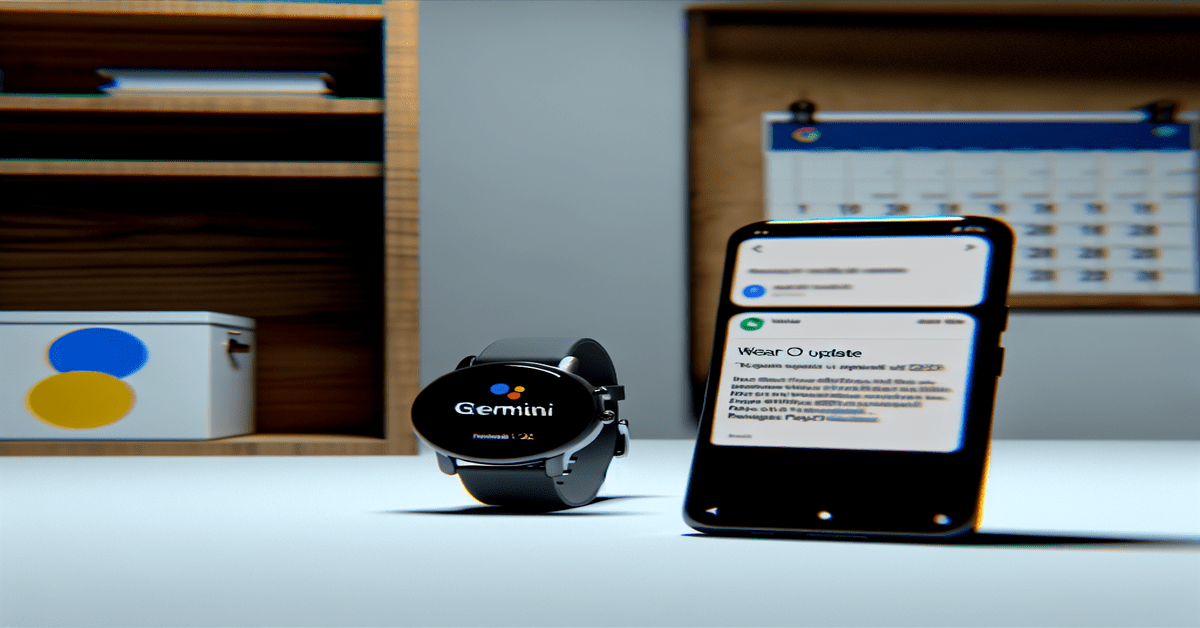Google Gemini: The Next-Gen AI Assistant for Wear OS
The world of wearable technology is about to witness a significant shift as Google prepares to introduce its latest AI-powered voice assistant, **Google Gemini**, to Wear OS. This update is set to replace the current Google Assistant, promising to revolutionize the way users interact with their smartwatches. As an industry expert, I am thrilled to share my insights on this exciting development and its potential implications for the future of wearable tech.
Gemini: A Glimpse into the Future
Google Gemini is not just another update; it represents a bold step towards a more intuitive and seamless user experience on Wear OS devices. While initially offering functionality similar to its predecessor, such as setting alarms, sending messages, and managing timers, Gemini is poised to evolve rapidly[1][2][3].
The activation process for Gemini remains familiar, with users able to summon the assistant by either holding down the side button or uttering the “Hey Google” hotword when the watch screen is active[1][2]. This continuity in user interaction ensures a smooth transition for existing Wear OS users.
The Transition Process
Google’s move to replace Google Assistant with Gemini across its ecosystem, including Android phones, Wear OS watches, and Android Auto devices, signifies a strategic shift in the company’s approach to AI assistants[2][4]. The transition to Gemini on Wear OS is expected to be seamless, likely occurring through a simple app update for the Assistant app[1][2].
While no specific release date has been announced, the anticipation is building, with many speculating that Google might unveil more details during the upcoming Google I/O 2025[4][5]. This event has historically served as a platform for Google to showcase its latest innovations and set the tone for the future of its products.
Implications and Speculation
The introduction of Google Gemini on Wear OS has sparked discussions about its potential implications for the smartwatch industry. Some experts believe that the switch to Gemini might coincide with the release of new hardware, such as a next-generation Pixel Watch model[5]. This move could signify Google’s renewed commitment to establishing itself as a key player in the wearable tech market.
Currently, Gemini appears to be more of a rebranding of existing features rather than a groundbreaking addition of new capabilities[5]. However, as with any Google product, continuous updates and improvements are expected. The true potential of Gemini lies in its future iterations, which could introduce revolutionary features that enhance the user experience on Wear OS devices.
Embracing the Future
As technology enthusiasts and industry professionals, it is crucial for us to stay informed about the latest developments in the world of wearable tech. The introduction of Google Gemini on Wear OS marks an exciting milestone, paving the way for a more intelligent and intuitive smartwatch experience.
I encourage all of you to keep a close eye on this development and actively engage in discussions surrounding its potential impact. By sharing our insights, experiences, and predictions, we can collectively shape the future of wearable technology and drive innovation in this rapidly evolving industry.
So, let’s embrace the arrival of Google Gemini and prepare ourselves for the next chapter in the evolution of Wear OS. Together, let’s explore the boundless possibilities that this AI-powered assistant brings to our wrists and redefine what it means to stay connected in the digital age.
#WearOS #GoogleGemini #ArtificialIntelligence #Smartwatches #WearableTech
-> Original article and inspiration provided by Stephen Warwick
-> Connect with one of our AI Strategists today at ReviewAgent.ai


